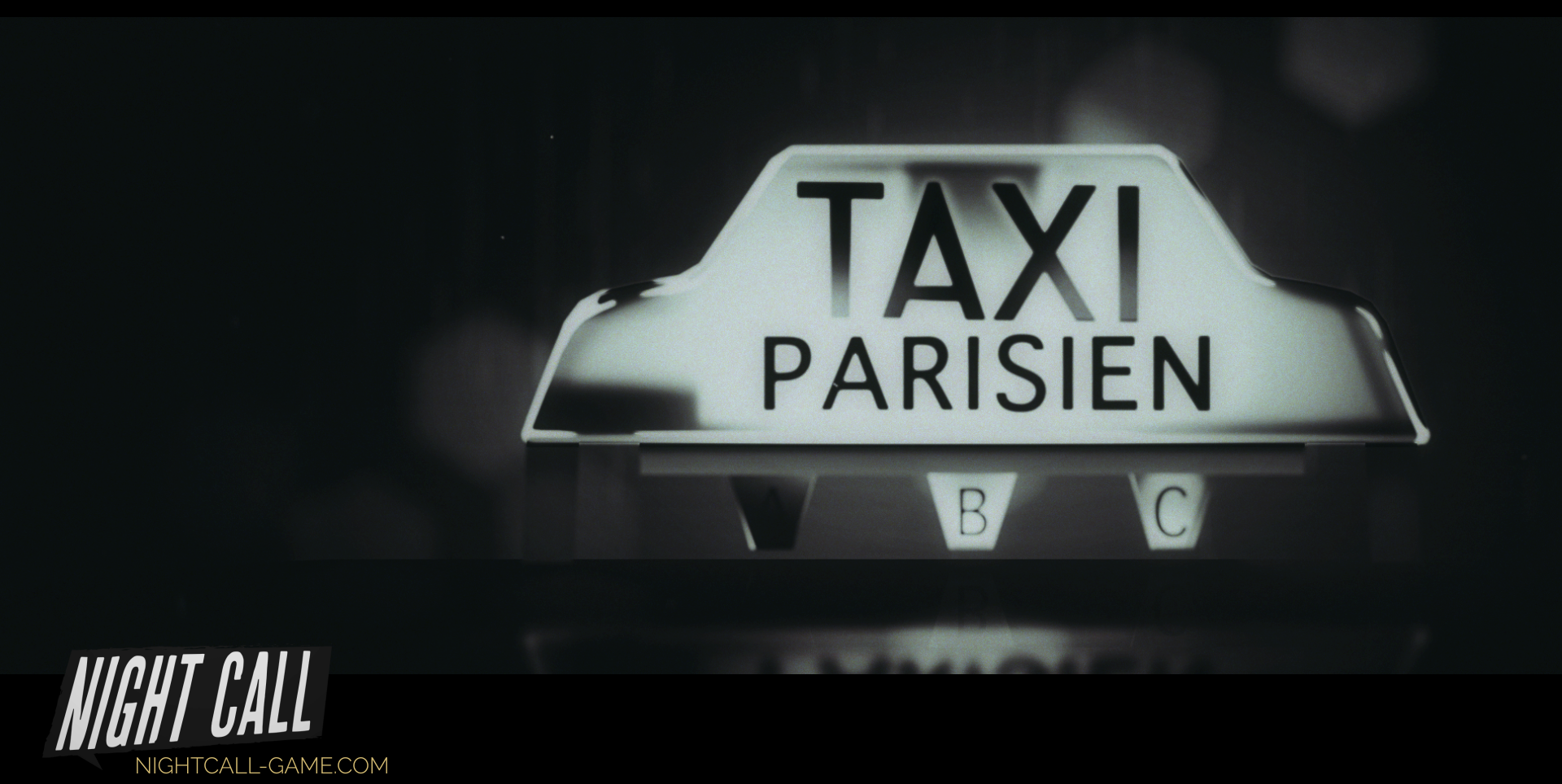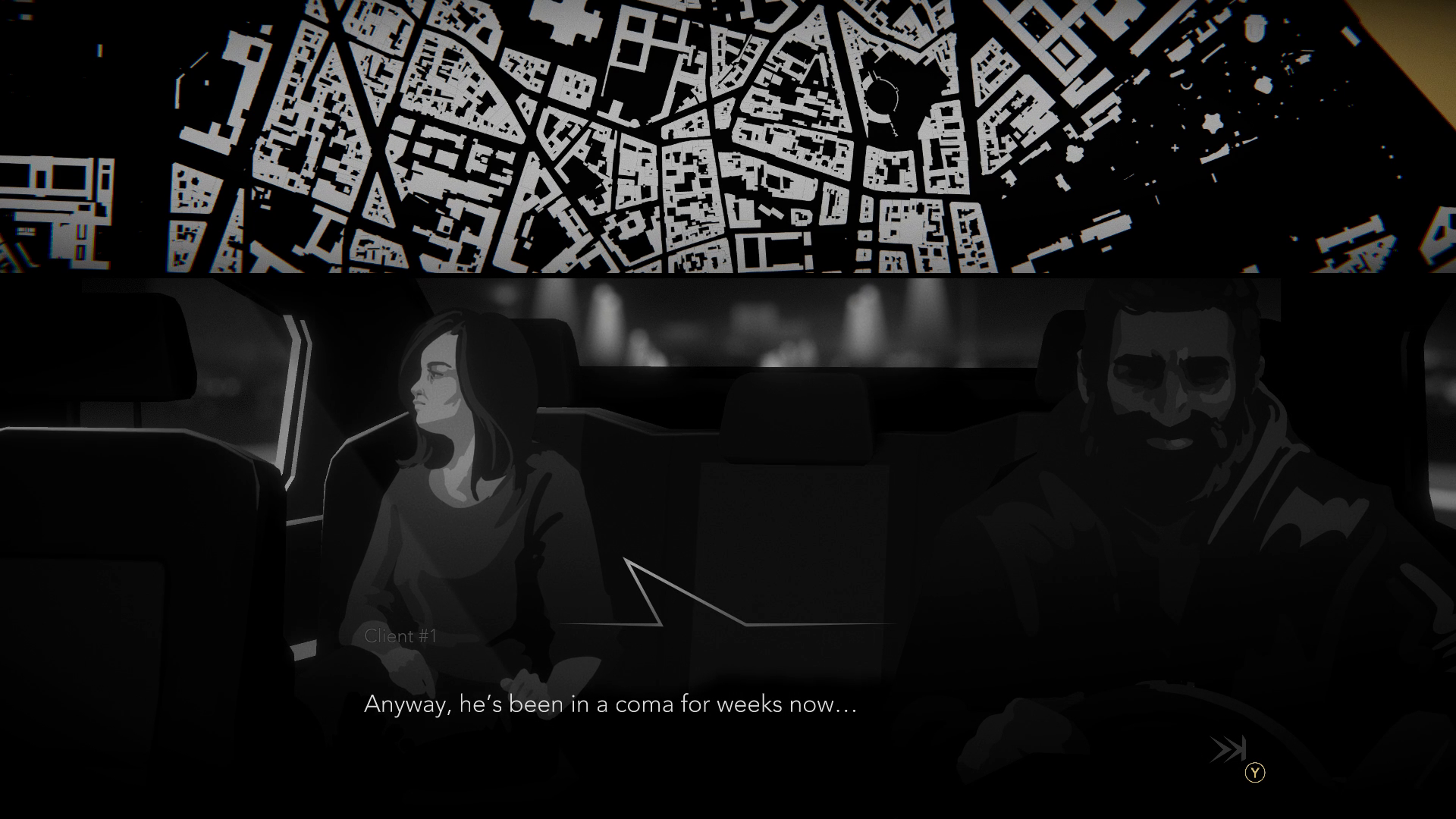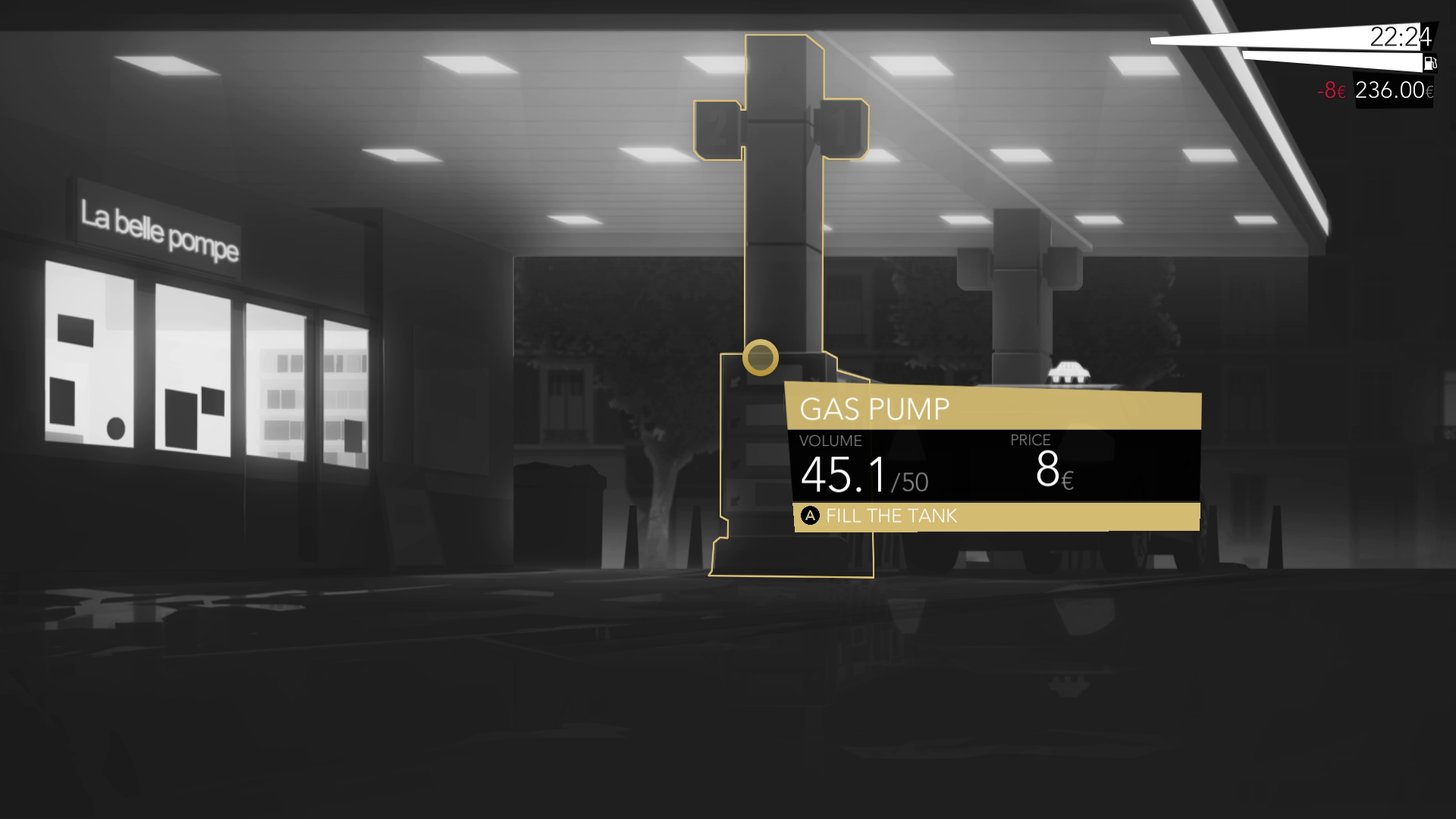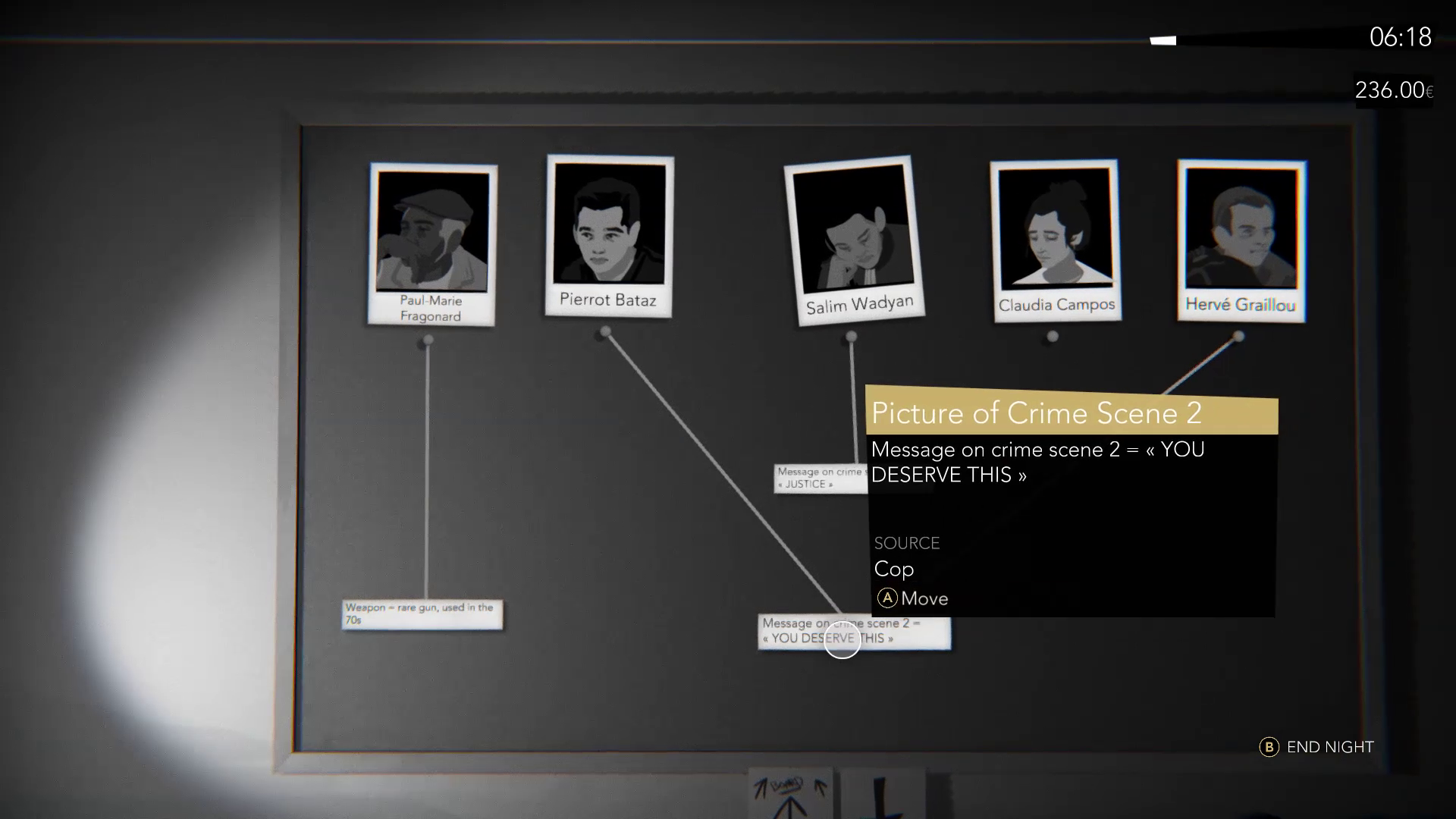Video games have an interesting history with turning day jobs into entertainment. BurgerTime makes serving food into a frantic race against the clock. Job Simulator found success by poking fun at employment, presenting the 9-to-5 life as a VR sandbox. More "realistic" games accurately treat work as a grind, such as in The Sims. Sure, you want your Sim to get promotions, but the job system is really a way to get money so you can survive and get to the actual content. Rarely is a game really about a day job, because why would people play that?
Night Call tackles that challenge head-on by putting the player in the driver's seat of a taxi. There's a neo-noir murder mystery to solve, sure, but your taxi duties don't take a backseat to the story. In fact, they're how you'll spend most of your time in the game. This leads to a tense and emotional series of encounters drawn from daily life, but also frustration when a shift doesn't go as planned.
It Wasn't Me
Right from the menu and opening cinematic, you know the tone Night Call is going for. You're in modern-day Paris, but it's presented in black and white with constant rain, like a classic noir film. And just like in those movies, murder starts the story. The cab driver protagonist almost meets his maker when his passenger is done in by a serial killer. This miraculous survival, and a strong desire to put someone behind bars, leads the cops to suspect you. You're given a week to hit the streets and gather enough clues to put the real killer away.
You drive your nightly cab route from 10PM-4AM, chatting up the passengers that come your way. Or listening as they incessantly chat at you. There are dialogue trees that give you the option to meddle in their daily problems, from confessing love to a married man to debating politics with a fiery pundit. If you play the exchange right, the passenger may share a rumor they've heard about the killer. They might even have a contact in the press or police department that can give you a juicy clue. At the end of the night, you go back to your apartment where you have a board with five suspects. There, you line up your clues and decide who has the most damning evidence against them.
The system is, for the most part, well-paced. Passenger exchanges are well-written and provide brief relief from the dire plot. The dramas they endure range from the silly to the saddening to the political and then back again. Several passengers even become repeat customers, allowing you to become invested in their struggles. The press releases boast 70+ passengers, and I appreciated the variety. You're given the option to refuse a fare at any time, so if you find you don't enjoy a particular passenger, you can skip them. The whole time, however, there are reminders that a killer is still on the loose. Whether it's the protagonist's nightmares or a detective who constantly calls, the deadline to present your case is always looming.
Balanced against the need to gather clues is a more immediate concern: getting paid. There are daily fees for things like cab cleaning, gas, and your character's need to light up a smoke every time something stressful happens. Fail to make enough money to pay these fees, and your boss comes to take your cab away. No cab, no clues. Game over. That's also where the game starts to show its flaws.
The Daily Grind
Whenever you're on your nightly shift, you're shown a GPS map of Paris' streets. Icons around you will point out gas stations, passengers, and contacts. Contacts can give you extremely useful clues, like a gun shop owner who identifies the murder weapon based on a bullet casing. I went to two contacts on my second night, then went to the gas station to fill up and chat up the clerk. I thought I was doing well. I planned to spend half the night on clues, then half getting fares. It turned out to be not enough. I got my cab taken away, and realized how this game expects you to play it.
To keep your cab for the whole week, you need to spend 90% of each night driving. Only after getting some nice fares should you feel safe in seeking out a contact. I imagine this is meant to increase the tension of the game. If you could freely pick up clues, the investigation would be too easy. Limiting your evidence keeps a certain amount of guesswork in play, making every decision count. Which is great in theory, but not so much in how the game executes it.
The balancing act of work and murder investigation is trying enough, but then the game throws in random encounters. I won't go into great detail for the sake of spoilers, but one example is your character blacking out. This results in him dreaming and remembering something about the murderer, but also costs you time; time you might have been planning to use earning money. Other times, customers may dash out of your cab in excitement and forget to pay you. These lost fares can sometimes mean not surviving the night, so you feel cheated by the game.
A Bumpy Trip Worth Taking
After two game overs due to money troubles, I managed to correctly guess my first killer. After that, my character finally got a peaceful moment to himself. I felt for him in that moment, which is a good sign. Night Call's money system and random encounters can be intrusive, as can a few bugs that made me need to restart a night, but the bulk of the game reaches its goal. The passengers feel drawn from life, and you'll find yourself wanting to know their stories. The investigations are suspenseful, and you can up the ante by selecting killers with varying logic in their motives. As far as video game depictions of jobs go, Night Call goes down a unique road.
3.5 Out Of 5 Stars
A Steam code for Night Call was provided by the publisher. Night Call is now available for PC, Mac, Xbox One, PS4, and Nintendo Switch.




